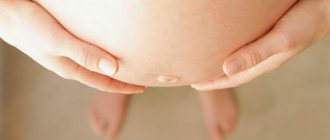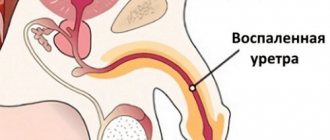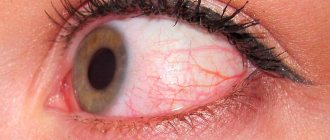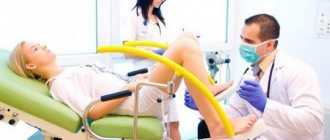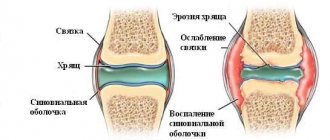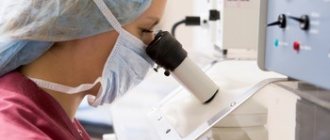Causes of thrush during breastfeeding
The most common cause of thrush during lactation is:
- The presence of diseases of the reproductive system and genital area in a chronic form, as well as diseases of the oral cavity or intestines.
- Use of dietary supplements (biologically active additives) or treatment with antibiotics.
- Taking hormonal medications , including contraceptives.
- The use of low-quality hygiene products , for example, cheap pads, as well as low-quality foams, gels or soaps for intimate hygiene, containing harmful fillers and fragrances.
- Improper lifestyle , accompanied by low mobility, which leads to stagnation of blood in the pelvic area.
- Resuming sexual intercourse too early after childbirth . It is important that the body fully recovers after such a heavy load.
Symptoms and manifestations of thrush
Common manifestations of thrush in nursing mothers, which often occurs not only in women, but also in men, include:
- The appearance of intense itching on the surface of the external genitalia, often accompanied by a feeling of severe burning, which becomes unbearable at night.
- Redness of the genitals and perineal area , aggravated by wearing thick or synthetic underwear.
- Pain and a feeling of severe irritation around the vagina from the outside.
- The presence of discharge , characterized by a thick cheesy structure, having a white or slightly yellowish color.
- The smell of the discharge is unpleasant.
- During urination, many women report severe discomfort and pain.
- Pain and discomfort are also observed during sexual intercourse , which should be avoided in this disease until complete recovery.
Features of thrush during lactation
Candidiasis, like bacterial vaginosis, is a very common female disease, often observed after childbirth. But, if in its normal state thrush is characterized by the presence of copious discharge of a curd-like structure without a particular odor, then during breastfeeding the discharge acquires a sharp, very unpleasant sour odor , and its color can change from milky white to creamy yellow.
On the external genital organs there is pronounced redness, swelling of the tissues, and swelling. The woman suffers from constant itching and burning sensations, which, as a rule, intensify significantly at night.
Many women also experience painful sensations when urinating , mainly due to the fact that urine falling on the inflamed skin significantly increases the existing irritation.
During sexual intercourse, a woman with thrush also experiences discomfort and pain.
Drugs to eliminate thrush during breastfeeding
Medications for treating thrush during lactation include oral medications, which include medications in capsules and tablets, as well as topical medications such as suppositories, vaginal tablets, ointments and creams.
When breastfeeding a baby, among all forms of medications, it is best to choose suppositories that eliminate the disease without affecting the entire body. It is important to treat candidiasis as quickly as possible, since thrush can spread to the baby.
It is impossible to be treated with tablets and capsules while breastfeeding, since any antibiotics are contraindicated when feeding a baby and can cause significant harm to the baby, because the active components quickly penetrate into the mother’s blood, and from there they enter breast milk.
Most often, to treat thrush when feeding a baby, doctors prescribe vaginal suppositories Clotrimazole, Terzhinan or Pimafucin. When using suppositories for thrush while breastfeeding, you can continue to feed the baby during the period of therapy , since the suppositories have an exclusively local effect, in this case only on the vaginal microflora.
It is best to insert suppositories before bed, placing them as deep as possible in the vagina, for which you can use an applicator.
Folk remedies
If drug treatment during breastfeeding is contraindicated for a woman, which can happen for various individual reasons, some folk remedies can be used as therapy.
The most effective remedies for thrush recommended by traditional healers are:
- Chamomile decoction . They need to rinse the inflamed genitals and mammary glands several times a day. You can also douching using chamomile decoction. During the treatment period, it is recommended to use it as a replacement for regular intimate hygiene products.
- Decoctions of herbs for douching , for example, oak bark or calendula (chamomile). It is not difficult to prepare a decoction; you should take 2 tablespoons of raw material per liter of boiling water, leave until it cools, and before use, dilute with warm water 1:1.
- Soda solution is also considered an effective remedy for thrush; it should be used to wash the genitals and breasts. To prepare, you need to dilute 2 teaspoons of dry soda in 0.5 liters of warm water. Washing should be done twice a day, rinsing the skin afterwards with warm, clean water.
- Green tea . A nursing young mother needs to increase her consumption of this wonderful drink, not only because it helps produce more milk, but also because green tea helps the body get rid of excess yeast, which creates an obstacle to the proliferation of fungi.
Treatment for itching of the clitoris
Only a doctor can answer the question of what to do if you experience discomfort and how to treat itching. One examination is not enough for an accurate diagnosis. The doctor will definitely order blood tests and take a smear. In some cases, a biopsy will be required for histological examination.
The course of treatment depends on the cause of the discomfort.
- To restore the microflora, the doctor prescribes Lactozhinal, Lactobacterin, Lactonorm, Femilex in the form of suppositories and capsules. Injected vaginally once a day for 10-14 days. If there is a slight imbalance, douching with whey. Additionally, you need to include fermented milk products, porridge from any cereals, and jelly in your diet.
- In case of allergies, it is enough to eliminate the irritant and maintain hygiene. Carry out water procedures daily at least once a day, and during the period of ovulation - several times a day. If the allergic reaction was caused by medications that are necessary to maintain health, the doctor must select an analogue. In case of serious violations, the doctor prescribes antihistamines: Suprastin (3 times a day for a week), Telfast (1 tablet per day, course - 10 days), Erius (1 tablet per day for 2-4 weeks), Claritin (1 tablet 1 once a day for 1-2 weeks).
You cannot take medications without a doctor's prescription!
- When yeast-like fungi Candida are activated and multiply, the doctor prescribes antifungal ointments, gels, creams Metronidazole, Clindamycin, Clotrimazole. Treatment is carried out locally 2 times a day for one month. After taking a smear, the doctor may extend the course of treatment. In case of a serious form of the disease, it is necessary to take Fluconazon tablets (3 capsules at a time), Diflucan (once a day for 7 days), Nystatin (3-4 tablets a day for 10-14 days), Mikosist (2 tablets a day for 1. 5-2 months).
- In case of malfunctions in the functioning of internal organs, a course of treatment is prescribed after a full examination and an accurate diagnosis. A mandatory component is diet. The itching on the clitoris will go away as you recover. To relieve unpleasant symptoms, the doctor may prescribe treatment of the intimate area with antihistamine ointments and herbal decoctions.
- Infectious diseases will have to be treated for a long time, strictly following all instructions. In this case, you cannot self-medicate.
- When diagnosing cancer, the problem is solved by surgery and radiation therapy.
Treatment of thrush on the nipples
Before you begin to treat thrush in the nipple area, you need to make an accurate diagnosis and be completely sure that the existing manifestations are caused by candidiasis and not, for example, mastitis, eczema, psoriasis or herpes.
If the doctor has confirmed that a woman’s nipples are affected by thrush, treatment can begin, which requires strict adherence to a number of instructions, in particular:
- Wash your hands thoroughly with soap before each feeding , as well as after it, wiping them afterwards with disposable paper towels. The same applies to changing baby's diapers and going to the toilet. It is important to remember to wash your hands.
- The baby should be fed more often than usual , but in a smaller volume, slightly shortening the procedure time. Before feeding, nipples should be cooled using a cold towel or a small heating pad with ice. If the mother experiences unbearable pain during feeding, you can express milk into a bottle.
- You should drink good green tea often , at least 4 to 5 cups a day, to eliminate excess yeast from the body and keep the development of fungi under control.
- Treat nipples with soda solution several times a day , performing the procedure after feeding. After which you need to apply creams or ointments against fungus, for example, Clotrimazole cream or ointment, Nystatin and others, remembering to wash them off thoroughly before the next feeding.
- Eliminate all sweets from your diet , as well as yeast and butter baked goods, replacing them with live yoghurts and products with bifidobacteria and lactobacteria.
- If the inflammation is very severe, you can apply syntomycin emulsion in addition to the main antifungal cream, making sure to wash it off before feeding.
- Avoid using nursing pads that absorb excess milk. The nipples should remain dry. But if you cannot do without such pads, it is important to change them after each feeding.
- It is also necessary to stop wearing underwear made of synthetic fabrics , replacing it with cotton products. It is best to wear a loose cotton robe without underwear during treatment.
- If you have vaginal thrush along with manifestations of the disease on your nipples, you need to consult a doctor, since in this case complex treatment is required.
- When expressing milk for feeding, it should be given to the baby immediately, without leaving it for later, since fungi can actively multiply in it.
If these requirements are correctly observed, improvement in the condition is observed already on the second day after the start of therapy. But if there is no improvement after 3 days, consult a doctor immediately .
Itching without discharge after childbirth: diagnosis
The process of labor and birth is behind us, and here it is - the baby. It seemed that nothing could darken this happiness. But it happens that after childbirth, itching appears without discharge. Itching after childbirth is a common phenomenon that brings psychological discomfort.
The itching after childbirth can be so severe that it causes the young mother not only psychological, but also physical discomfort. And the inability to concentrate on the child exhausts a woman and makes her lash out at her loved ones.
Childbirth is a complex, albeit natural process, which does not always tend to end without complications. It’s good if mother and baby are healthy and are discharged home on the fifth day. In most cases, this is exactly what happens.
But sometimes it happens that upon discharge everything is fine, but the young mother already at home begins to suffer from unbearable itching in the vagina, which prevents her from sleeping at night and fully engaging in everyday activities during the day. And as you know, a woman has more than enough household chores after childbirth.
So, what causes itching in the postpartum period, and what to do if such a nuisance does happen? First of all, you need not to panic and not look for symptoms of a serious illness. Because it happens that a young mother, having heard a lot of “practical” advice and “scary” stories about childbirth and the postpartum period from her friends, begins to look for problems in her body.
You should never take anything personally in such situations; you need to calmly sort out your health, preferably in tandem with your doctor. The first thing you should remember is that pregnancy is not an easy process, and at the end of it, all organs and their functions will not return to the desired, pre-pregnancy direction, right away.
After all, during pregnancy there was a restructuring of all systems and organs, especially the hormonal system, because it is responsible for the occurrence, course and successful outcome of pregnancy. In most cases, it is because of hormonal imbalance that itching of the perineum occurs after childbirth. Itching without discharge in the postpartum period usually indicates that the vaginal mucosa is dry due to hormonal changes associated with pregnancy and childbirth.
This causes severe itching. Therefore, if you are not bothered by any discharge other than postpartum discharge (they are called lochia, normally last about six weeks, and over time they lose their intensity and color), then you should not worry too much. Probably, the hormonal system has simply not returned to normal after childbirth. It is necessary to observe the rules of personal hygiene, and wash with a weak soda solution or a decoction of anti-inflammatory herbs: chamomile, string, calendula, they have an antipruritic effect.
You can also wash your genitals with a product such as Citeal; it is sold in any pharmacy and is intended for intimate hygiene in the postpartum period. You should also remember to change the pads every three to four hours. By the way, it should be added that itching can also occur due to allergic reactions to the use of pads: everyday or regular. Especially if they are flavored.
Sometimes it’s worth changing the manufacturer of the pads, and the itching problem disappears by itself. This means it was an allergy to the gasket material. In general, during the postpartum period, gynecologists recommend using not store-bought pads, but cleanly washed and ironed cotton rags. This way, in their opinion, there is less chance of infection and itching and irritation.
However, a visit to the doctor should not be delayed if the birth was difficult, and if there was a rupture of the perineum (or an episiotomy was used - an incision by the doctor in the perineum of the woman in labor to avoid spontaneous rupture due to a large fetus) and vagina during childbirth, as a result of which seams. The fact is that the cause of itching can be a banal allergic reaction to the material used to sew up tears or incisions.
Also, infection can develop on fresh stitches, often due to non-compliance with the rules of intimate hygiene. You should consult a doctor, he will rule out an infection, or confirm the fact of its existence, and tell you what to do in such a situation.
Another common cause of itching of the vulva or vagina, especially after childbirth, can be ordinary thrush, as it is popularly called, and doctors talk about candidiasis. What is it? Fungi of the genus Candida are present on the vaginal mucosa of any woman in small quantities. But due to hormonal changes associated with pregnancy, fungi begin to multiply intensively, because changes in the acidity of the vagina create fertile ground for this.
As a result, often after childbirth, a woman feels unbearable itching and burning in the genital area. Itching in this case occurs without discharge, especially if candidiasis is chronic, the recurrence of which is caused precisely by recent childbirth. Discharge may appear later, or may not appear at all.
A doctor will help you make a diagnosis by taking a smear of vaginal flora. If the answer is positive, the doctor will prescribe suppositories and ointments. So there is nothing terrible in this situation, and there is no need to delay a visit to the doctor, because it is better to dot all the I’s at once than to suffer from itching of unknown origin.
Be that as it may, only a doctor can determine the true cause of itching without discharge after childbirth. You should not be afraid of a visit to the doctor, and you should always remember that usually serious problems with women’s health are associated with uncharacteristic discharge. And if they are not there, there is no need to worry too much: most likely, the cause of the illness is a recent pregnancy and childbirth.
It’s just that the body has not yet fully returned to normal after the shock of childbirth, time will pass, everything will get better. Now, with the help of a doctor, you can determine the cause of the itching so as not to worry. After all, a child needs a healthy and calm mother who has a lot of milk, then the baby will be comfortable and calm.
As follows from the above, itching of the genitals after childbirth without discharge is not always associated with any pathology. However, some time after giving birth, you need to visit a gynecologist who will answer questions about the health of the young mother.
Preventing thrush while breastfeeding
To prevent the appearance of thrush when breastfeeding, a number of preventive measures should be followed, for example:
- Adhere to a low-carbohydrate diet , eliminating (or minimizing) the consumption of rich yeast baked goods and sweets, replacing them with berries and unsweetened fruits.
- Provide the body with balanced, proper nutrition in sufficient quantities. To produce a sufficient amount of nutritious milk, a nursing mother needs proper nutrition, so it is better to include fermented milk products, herbs, fresh fruits and vegetables, and meat in the menu.
- Maintain hygiene . For daily procedures, you should not use regular soap, since its use disrupts the state of the vaginal microflora, causing pH fluctuations. It is best to use special soft products without dyes or fragrances.
- Wear loose clothing and underwear made from natural fabrics . It is important to remember that tight underwear, especially if it is synthetic, creates a kind of greenhouse effect, increasing humidity and creating ideal conditions for the development of fungi. Pads, including daily ones, have the same effect, so it is not recommended to use them constantly.
- During menstrual bleeding, it is better to stop using tampons , and pads should be changed as often as possible. You should also avoid using scented hygiene products, including toilet paper, as they disrupt the vaginal microflora.
In addition, do not forget that before each feeding of the baby, as well as after it, you must thoroughly wash your hands with soap and wash your breasts. And after feeding, the nipples must be periodically treated with special creams.
Is it possible to breastfeed if you have thrush?
The presence of candidiasis is not a reason to stop breastfeeding , since this disease does not pose a particular danger to the baby.
It is important to contact a good specialist as soon as the first symptoms of the disease are noticed, without waiting for all manifestations to go away on their own. It is necessary to make an accurate diagnosis so that the doctor can prescribe the correct therapy.
If feeding causes severe pain due to inflammation of the nipples , they can be cooled with ice or a towel dipped in cold water, and in order not to cause unnecessary injury to irritated tissues, the time of the feeding procedure should be reduced, but it is important to increase the number of times the baby is applied to the breast.
The first months after the birth of a child are always very difficult. In addition to endless worries about the baby, the mother may also be bothered by various types of unpleasant sensations. One of these sensations that significantly spoils life is severe itching in the vagina after childbirth. There are many reasons that contribute to the occurrence of this disease.
Vaginal dryness after childbirth: normal or pathological?
Nine months of “pregnant” life, then a twelve-hour labor spent in agony, and here he is – the long-awaited baby, quietly snoring on his mother’s chest.
Along with great happiness comes the hassle of caring for a child, which takes up almost all of your free time. And, as often happens, a woman has no time left to improve her health and find out why these strange sensations in the form of itching and dryness of the vagina occurred after childbirth? The fact is that during vaginal birth, the baby puts strong pressure on the vaginal walls, stretching it. Childbirth is a completely physiological process, which means there is no need to worry that Mother Nature did not take care of the postpartum rehabilitation of the vagina. After some time, the pelvic muscles will restore tone, and everything will fall into place, reaching its previous size.
Vaginal dryness after childbirth is a symptom that appears as a result of thinning of the walls of the mucous membrane. Considering the postpartum period, we can say that discomfort in the vagina is quite normal if we are talking about several weeks. A woman may complain not only of vaginal dryness after childbirth, but also of itching, burning, pain during sex, and bleeding of the mucous membrane.
IMPORTANT! When vaginal dryness after childbirth persists for two or more months, you should immediately visit a doctor.
Origins
Some of the body's resources will definitely be spent during the nine months of waiting for the baby. Carrying a baby for a long time is a huge task and requires considerable effort, so the causes of discomfort in the vaginal area may be hidden in problems that arose during pregnancy.
Quite often a girl is worried about the following:
- low hemoglobin (anemia);
- weak immunity;
- deficiency of vitamins in the body;
- changes in the endocrine system;
- swelling of the body;
- dry skin;
- elevated blood sugar levels.
Characteristic symptoms
In addition to the irritation in the intimate area characteristic of the disease, the disease is accompanied by other, less recognizable, manifestations, which should also be paid close attention to and not ignored:
- Aching and nagging pain in the lower abdomen.
- Scanty dark brown or red vaginal discharge.
- Sharp pain in the area of injuries, discrepancies and ruptures.
- Constant burning sensation when visiting the toilet.
- Periodic spasms and pain in the uterine area.
- Unpleasant, putrid odor on the genitals.
- Discharge of a cheesy type, snow-white color.
- Increased body temperature.
Sudden itching after childbirth should in no case be ignored and lead to complications.
Having discovered such alarming signals in yourself, you must immediately contact a good and reliable gynecologist. This is the only way to eliminate all possible risks associated with this disease. It is important that the doctor is very experienced and proven.
Causes of unpleasant symptoms
Gestation is a happy time for any woman. But the growth and development of a baby requires a large amount of various biologically active substances, which the fetus takes from the mother’s body. By the end of pregnancy, almost every woman has the following factors:
- immunodeficiency,
- hypovitaminosis,
- anemia,
- metabolic-endocrine changes,
- fluid retention in tissues.
Childbirth is accompanied by various injuries to the genital organs, which can be small and unnoticeable or large and requiring surgical intervention. Vaginal itching after childbirth can occur due to the following reasons:
- exacerbation of thrush;
- prolonged presence of blood in the vagina, which is a breeding ground for microbes;
- the presence of microtraumas with infection;
- healing lacerations and surgical wounds (episiotomy, perineotomy, ruptures of the cervix, vaginal walls and perineal skin);
- increased blood sugar due to endocrine disorders;
- exacerbation of chronic infection of the genitourinary organs (cystitis, urethritis, colpitis).
While breastfeeding, a woman continues to constantly give the baby valuable nutrients, which prevents the immune system from quickly recovering. Hypovitaminosis and anemia can persist for a long time, creating a lot of difficulties for the female body.
If you experience any itching sensation in the perineum, you should consult a doctor.
Diagnostic methods
After the meeting and oral conversation, the doctor will offer to undergo diagnostics, which consists of several stages. The first thing the specialist will do is conduct a personal examination, during which the main symptoms and characteristic manifestations can already be identified. Some doctors, even by the characteristic appearance of irritation in the intimate area, are already able to make an accurate diagnosis. But at this stage, the mother’s body is very weakened, so it’s not worth drawing conclusions so quickly. It is necessary to wait for test results, of which the following are usually required:
- PCR diagnostics (for the presence of viral infections).
- Urinalysis (for the presence of pathogenic microbes).
- Complete blood test (to assess glucose levels).
- Analyzes of vaginal discharge.
- Examination of smears taken from the cervix and outside.
These manipulations will help to quickly detect the source of the disease and eliminate the problem with the help of suitable treatment.
Causes of itching in the clitoral area, sometimes it is enough to change the regime or hygiene products
Nonspecific causes
Incorrect adherence to hygiene standards. Extremes in observing hygiene rules are equally harmful: unpleasant sensations can be provoked either by insufficient diligence in hygiene or by excessive diligence. Bacteria that protect the intimate area from infections can be destroyed from excessive zeal, which creates a certain imbalance and increases the risk of infection.
Incorrectly chosen hygiene products and synthetic underwear can also provoke unbearable itching in the clitoral area. But in this case, treatment will not be needed - in exceptional cases, special vaginal suppositories will relieve the burning sensation. But often it is enough to change hygiene products to hypoallergenic analogues, and synthetic underwear to natural ones.
Hormonal reasons
When hormonal imbalances occur in a woman’s body, sometimes it is this area of the body that signals a malfunction. But the cause of the disorder does not always lie in endocrine diseases - sometimes such signs appear during pregnancy, especially in the later stages. The entire groin area can become hypersensitive due to processes occurring in the body - endocrine and bacterial.
Another common hormonal cause is a decrease in the level of estrogen in the blood, which is fraught with atrophic vulvovaginitis. This is rather the lot of middle-aged women who complain of similar sensations and accompanying dryness of the mucous membranes.
In rare cases, clitoral itching may be an individual reaction of the body to menstruation. Such symptoms disappear after a few days without any medical intervention.
Allergic causes
Allergic itching of the clitoris can be triggered by both local allergens and the body’s general systemic response to any irritant.
Local allergens may include household chemicals and pharmacological agents:
- ointments,
- cream,
- personal hygiene products used by the woman,
- washing powder that was used to wash her clothes,
- the underwear itself contains synthetic components.
Systemic irritants can be:
- food products that cause allergies,
- chemicals,
- medications.
The specificity of a systemic allergic reaction lies in the fact that not only the intimate area reacts to the irritant, and the itching is necessarily accompanied by a rash and even swelling. If it comes into contact with the skin and mucous membranes of the intimate area, the allergen can only cause local irritation
When treating such disorders, it is important to first get rid of the allergen. And antihistamine ointments for a local reaction and drugs for a systemic one will relieve the reaction itself.
Syphilis
The primary period of development of syphilis is characterized by burning and itching in the clitoral area. While chancre is forming, ulcers appear in any area of the genital organs. But if the ulcer has healed, this is not yet a recovery. The hidden form of the flow following the first may manifest itself in the form of a rash. But it is better to start treating syphilis at the first, ulcerative stage - this way the patient has a greater chance of minimal consequences and complications for the body.
Other STDs - gonorrhea, trichomoniasis and other sexually transmitted diseases
The cause of itching in the clitoral area in most sexually transmitted diseases is purulent vaginal discharge, which, despite all the differences in composition, color and smell, causes severe irritation on the clitoris and the entire intimate area.
In the treatment of STDs, self-medication is unacceptable. Timely treatment under the supervision of a venereologist quickly relieves not only unpleasant symptoms, but also their dangerous consequences
It is also important that the patient’s sexual partner also takes preventive measures.
Genital herpes
The itching that accompanies herpes is provoked by slightly different irritants: the elements of a herpetic rash - blisters - burst, creating noticeable inconvenience.
A herpetic infection settles in the body forever, and periodically manifests itself in one way or another. When the body's resistance to infections decreases, it is necessary to use relieving therapy that eliminates symptoms with the help of Acyclovir or its analogues.
Unconventional techniques
Traditional methods are considered absolutely harmless (they should be used after consulting a doctor and in the absence of contraindications). Among the available recipes, the most effective are:
- warm compresses and baths with a decoction of herbs (chamomile, calendula);
- regularly washing the problem area with boiled water and softening soap (or gel);
- treating the skin with a safe antiseptic (furacilin, chlorhexidine);
- For a short time, you can apply something cool (a cloth or napkin soaked in cold infusion or plain water), this will temporarily reduce irritation and redness.
Prevention
In order to prevent such an unpleasant problem as itching in the intimate area after the birth of a child, it is worth paying attention to several points.
It is very important to follow the recommendations:
- Maintain body hygiene and regularly change the necessary products (pads) to protect yourself from infections and not create an environment favorable to them.
- Follow an extremely balanced diet (include more: vegetables, fruits, fish, herbs and nuts) and take vitamins to avoid hypovitaminosis, exhaustion and weakness.
- Consume fish oil, magnesium and folic acid (against dry skin and for good health).
- Change your underwear regularly, focusing on natural cotton fabrics.
- Pay close attention to any rubbing, rashes, allergic reactions or rashes.
- Drink enough water to eliminate body swelling (at least two liters).
- Do not miss a routine examination with a gynecologist.
If a girl suddenly notices that her intimate part is itching, she should not put off going to see her doctor for too long. This disease does not pose any particular danger, but for any mother it is very important to eliminate unpleasant symptoms as soon as possible and begin to enjoy life to the fullest.
Such manifestations quite often upset young girls who do not know what to do and who to turn to for advice. If mommy feels that a delicate area has begun to itch very much, you should not scratch anything or simply touch it with your hands. There is a possibility of infection, causing further irritation or scratching the body and causing severe pain.
It is possible to alleviate the first signs by simply washing with warm water or using an infusion of herbs and flowers.
This manipulation is aimed at temporarily calming suddenly inflamed skin. It is worth using a neutral baby cream or oil with a natural composition. During this time, it is important to moisturize and wash the delicate area regularly. It is advisable to choose soft towels that quickly absorb water and cotton panties.
It would also be advisable to change the bed linen to clean, fresh and made from natural fabrics (suitable: chintz, linen, satin, silk, cambric, cotton, calico). You also need to pay attention to clothes: forget for a while about tight jeans, tight skirts and dresses, and products made from synthetic materials.
How to get rid of it?
If a specialist detects the development of genital infections in a nursing mother, he will prescribe antibiotics and anti-inflammatory drugs. Two partners need to be treated, since it is more difficult to identify an infection in a man. If vaginal dysbiosis is detected in a woman, local treatment agents and drugs that stimulate the immune system are used.
The easiest and safest way to treat vaginal itching after childbirth is to use antiseptic vaginal suppositories or soothing ointments.
It is necessary to use local products that include beneficial microorganisms. They contain bacteria, which are an essential component of the vaginal microflora of a healthy woman. How do they help? And are they effective? Bacteria enter a humid environment, come to life and multiply. The balance of beneficial bacteria is restored. Good microflora has protective properties against the development of harmful bacteria, which prevent thrush and other fungal diseases.
It is better to start urgent treatment. The disease may later acquire a chronic form, which is difficult to cure.
Medications
The only drug approved by doctors to relieve symptoms is Fluomizin. It will eliminate the woman's discomfort.
Fluomizin is a good remedy against itching, burning, dryness and redness in the intimate area, and is also approved for pregnant and nursing mothers
Treatment at home
You can treat the underlying disease at home. In modern medicine, there are various creams and gels that are recommended for use in the intimate area after childbirth. They contain medicinal herbs and oils, which allow you to normalize the condition of the vaginal mucosa for a long time and eliminate increasing symptoms. After use, you feel significant relief. These gels and creams are recommended for use as preventative measures, as soon as a woman feels the first signs of an unpleasant condition.
Traditional methods
Burning sensation in the vagina will help eliminate folk remedies that will restore the female body after childbirth.
There is a recipe for the infusion:
- 1 tbsp. chamomile flowers in 2 cups of boiled water. Let it brew for 3-5 minutes. Then pass the resulting broth through a fine strainer. A woman is recommended to douche her vagina for a week. At the same time, use the prescribed medications prescribed by your gynecologist.
- If you don't have chamomile on hand, you can use other plants. Calendula or stinging nettle flowers are suitable. Next, follow the same principle as in the first method, prepare a decoction. Place one tablespoon of raw material in boiling water and leave. It is also recommended to periodically perform warm vaginal douching. The decoction can relieve swelling, relieve irritation and have a disinfecting effect. This is a great way to initially relieve unpleasant symptoms if you were unable to get an appointment with a gynecologist.
- Another effective way. Take a spoonful of soda and salt and dissolve it in one liter of boiled water. It is recommended to treat with this solution 3 times a day.
Causes
There are a number of factors, the impact of which may cause inflammation of the genital organs during lactation. The main ones are:
- neglect of daily personal hygiene rules (during menstruation, this issue should be given special attention);
- wearing clothes that are too tight and tight can also cause vulvitis;
- changes in hormonal levels (it is no secret that during pregnancy and after childbirth, a woman’s hormonal levels undergo a number of changes, which can become one of the reasons for the development of the inflammatory process);
- diabetes;
- overweight;
- allergic reactions to sweat, cosmetic products;
- use of deodorants for the intimate area;
- damage to the mucous membrane during sexual intercourse or wearing pads for a long time;
- irritation of the vulva as a result of exposure to urine, secretions (in the presence of infectious processes);
- avitaminosis;
- use of certain medications;
- combing the perineal area;
- lack of a stable sexual partner;
- chronic diseases of the reproductive system.
Experts diagnose two types of vulvitis:
- Specific. The main reason for its development is a specific pathogen.
- Non-specific. It appears as a result of the activity of a group of microorganisms (for example, Staphylococcus epidermidis, Trichomonas, fungi, peptococci, clostridia, and so on).
Causes of vaginal dryness after childbirth.
One of the main reasons why unpleasant changes appear in the vagina is hormonal levels. After childbirth, there is a natural decrease in estrogen - female sex hormones, the low level of which leads to vaginal dryness after childbirth.
So, with a lack of estrogen in the body, the following processes occur:
- fat metabolism slows down;
- the level of collagen production, which is responsible for maintaining tissue elasticity, is significantly reduced;
- the amount of fluid retained in the tissues also decreases, which means the tissues become flabby and inelastic.
Recent childbirth often discourages many new mothers from getting pregnant. Morally, a woman is not ready for the birth of another baby, and her body needs to rest and recover. Incorrectly selected oral contraceptives can cause vaginal dryness after childbirth.
Latex condoms often provoke the development of an allergic reaction due to increased sensitivity of the vagina after childbirth.
If there is insufficient arousal, sex can turn into real torture. After childbirth, a woman may need more time to tune in to intimacy. Rushing on the part of a man in no way contributes to the production of lubrication in the vagina, which means that sexual intercourse can cause pain.
Doctors strongly discourage young mothers from using sanitary tampons. Using tampons can increase vaginal dryness in the first months after childbirth. In addition, you should stop using toilet paper, which dries out the mucous membranes, and replace it with wet wipes for intimate hygiene.
IMPORTANT! The appearance of itching, burning and dryness in the vagina after childbirth may indicate the development of an infectious-inflammatory process and requires medical consultation.
Symptoms
The main symptoms of vulvitis in a nursing mother are:
- redness of the mucous membrane and labia, swelling;
- itching and burning sensation;
- small blisters and ulcers may appear;
- irritation of the entire groin area;
- pain when urinating or walking;
- feeling of discomfort;
- depending on the nature of the disease, bloody, yellow or curdled discharge may appear;
- enlarged lymph nodes in the groin area;
- unpleasant odor of discharge;
- increased body temperature;
- in advanced cases, the mucous membrane becomes covered with a layer of plaque.
Diagnosis of vulvitis in a nursing mother
Vulvitis can be determined using an examination, which includes:
- gynecological examination;
- collecting patient history data (studying symptoms, patient complaints, etc.);
- colposcopy (diagnostic examination of the cervix);
- general urine and blood tests;
- vaginal smear for bacteriological examination;
- carrying out cultural inoculation to determine susceptibility to antibiotics;
- blood immunogram (used as an additional study to determine the state of the immune system);
- Polymerase chain reaction will help identify urogenital infections;
- Perhaps the doctor will prescribe an examination for torch infection.
Complications
If you do not pay attention to the signs of vulvitis in time and do not carry out the necessary treatment, it can lead to the following complications:
- damage to nearby tissues and organs of the genitourinary system;
- infertility;
- pain and severe discomfort during sexual intercourse.
To avoid such complications, when the first symptoms of the disease appear, you must immediately contact a gynecologist and undergo the necessary examination.
Treatment
What can you do
Only a qualified specialist can make an accurate diagnosis and prescribe the correct treatment. In addition to the main course, a nursing mother is recommended:
- visit a gynecologist regularly;
- strictly follow all his recommendations;
- do not self-medicate;
- do not wear tight underwear;
- try not to scratch irritated areas;
- refrain from using aromatic powders;
- be sure to follow the rules of personal hygiene;
- purchase only high-quality and safe cosmetics for intimate hygiene;
- Avoid using deodorants for the bikini area.
What can a doctor do?
The basis of treatment for vulvitis during breastfeeding is:
- fight against microorganisms that caused the disease;
- increasing immunity and body resistance.
Since the lactation period does not allow the use of serious drugs due to the possible negative impact on the baby through breast milk, the most gentle therapeutic regimen is selected, taking into account all possible consequences. The treatment program for inflammation of the vulvar mucosa usually includes:
- The use of special antiseptics for the treatment of the external genitalia. The procedures are carried out daily up to three times for 10 days.
- Warm baths with decoctions of medicinal herbs that have antibacterial properties (chamomile, calendula, string, eucalyptus). They not only help relieve inflammation, but also significantly improve overall well-being.
- Lotions, compresses, douching.
- The use of antimicrobial vaginal suppositories or tablets.
- Taking vitamin and mineral complexes to boost the immune system.
In complex cases or with a recurrent course of the disease, antibiotic therapy, antihistamines and immunostimulants are indicated. At the same time, the issue of a possible temporary cessation of breastfeeding or additional prescription for the baby of drugs containing bifidobacteria in order to maintain the normal functioning of the intestines is resolved.
Therapeutic measures
Any treatment option must take into account the factor of lactation: in a postpartum woman, it is necessary to use medications that do not have a negative effect on the production of breast milk and cannot affect the health of the baby. Almost all vaginal suppositories with antimicrobial action have antipruritic properties, but in each specific case the doctor will select therapy individually. Folk remedies for topical use are absolutely safe, but we must remember that it is impossible to use douching against the background of fresh perineal wounds. It is optimal to use the doctor’s recommendations, but when it is not possible to consult a specialist, the following treatment methods can be used:
- sitz baths with chamomile;
- washing with a solution of medicinal herbs with an antipruritic effect;
- treating the perineum with an antiseptic solution (chlorhexidine, furatsilin).
Depending on the identified cause, the doctor will prescribe treatment with local forms (vaginal suppositories with proven safety for mother and baby) and a general restorative course.
The most difficult is the treatment of suppurating wounds of the perineum, which occurs after ruptures and surgical operations to suture wounds. In this case, antibiotic therapy may be required, which will require temporarily stopping breastfeeding. Local treatment of a purulent focus involves, at the first stage, daily treatments using antiseptic solutions, and at the second stage, the use of wound-healing ointments. Usually, during course therapy for suppuration, itching is a favorable sign indicating that the healing process has begun.
In the postpartum period, itching of the perineum is a sign of inflammation, requiring all necessary diagnostic procedures. Treatment should be carried out with the mandatory participation of a doctor: self-medication may be ineffective or unsafe. It is especially important to consult a doctor if you have postoperative wounds in the perineal area.
Prevention
You can prevent the development of vulvitis during breastfeeding by adhering to the following simple rules:
- daily genital hygiene procedures;
- refusal to use untested cosmetics;
- timely treatment of chronic infectious processes in the body;
- purchasing loose underwear only from natural fabrics;
- maintaining a healthy lifestyle, giving up bad habits;
- ensuring regular sexual life with one partner;
- mandatory physical activity;
- preventing excess weight;
- avoiding long-term use of daily sanitary pads;
- balanced diet.
The appearance of unpleasant sensations in the vagina during pregnancy
In the expectant mother, vaginal secretion increases; for the development of bacterial flora, it represents the most favorable environment for this. In the case when itching appears along with candidiasis or other fungal diseases, which often occur during pregnancy, the discomfort that appears in the clitoris and vagina can be quite intense, causing a lot of inconvenience.
You should definitely notify your gynecologist about the appearance of itching in these places, since during pregnancy, a genital tract infection poses a particular health hazard.
To prevent the appearance of unpleasant sensations in the vagina during pregnancy, it is advisable to cure existing ailments of the female genital area of a chronic nature while planning conception. You should also avoid stress, drink alcoholic beverages, avoid smoking, and organize proper nutrition.
